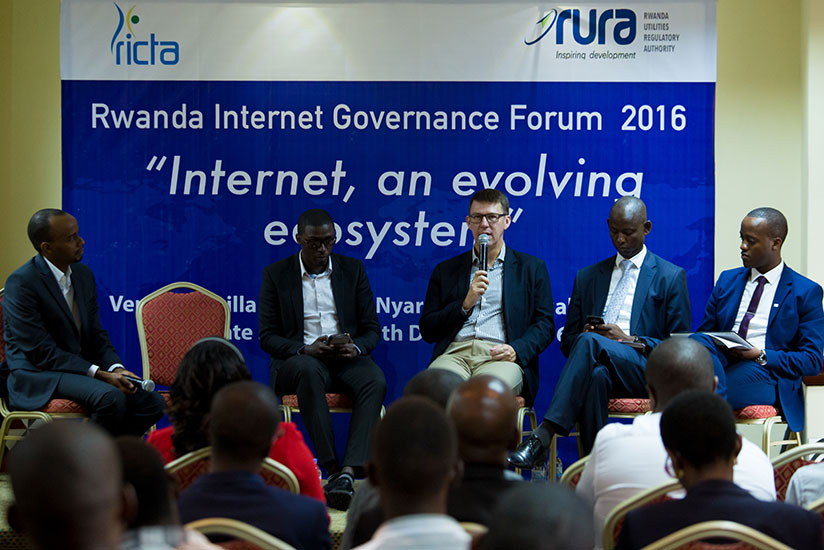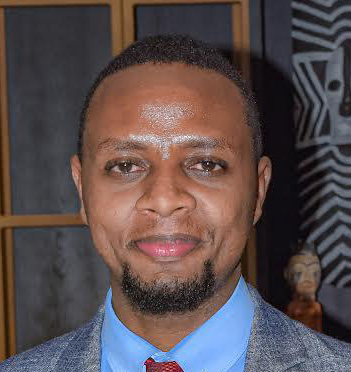The 2016 Internet Governance Forum (IGF) was held in Kigali, yesterday, providing yet another opportunity for the Government, private sector, civil society and other stakeholders in the information and communication technology to deliberate on current issues affecting the sector.


The 2016 Internet Governance Forum (IGF) was held in Kigali, yesterday, providing yet another opportunity for the Government, private sector, civil society and other stakeholders in the information and communication technology to deliberate on current issues affecting the sector.
One of the main topics at the forum was whether there was a need for software application development standards.
Discussions about enacting regulations and legal frameworks for software development and emerging technologies were among the highlights.
"We are becoming more dependent on software; land titles are being digitalised and everything around us is being digitalised, yet most of them are using software (computer systems). However, we don’t know if they’re following the standards to protect the consumers,” said Ghislain Nkeramugaba, chief executive of Rwanda Information and Communication Technology Association (RICTA), the organisers of the forum.
He said some of the software developed locally was being exported across the region and beyond, reaching developed countries in Europe and the Americas.
"Software development is growing in different countries, and when you look at most of the things we do these days, they are driven by software applications. There’s, therefore, a need to have a set of standards that govern them,” said Alain Kajangwe, one of the developers whose company is designing software applications for a Japanese firm, but also exporting them to Europe.
Discussions revolved around certification and regulation of software engineers, but some developers were in disagreement with the regulators and policy-makers, saying it was too early to set rules for such innovations.
"We can’t regulate something that has just started. Let’s first focus on creating software developers before setting rules that may limit efforts to come up with more innovations,” said Aimable Kimenyi, of Algorithm Inc and head of Software Developers Association.
"Certification doesn’t guarantee creativity, security, and perfection of the systems. The ICT industry is different. A Senior One student can create a solution, and if there are rules set against them, they will easily be discouraged. We should focus on providing skills and strengthening awareness about internet and new technologies,” said Regis Rugemanshuro, another participant.
The future of Blockchain technology
The forum, organised under the theme,"Internet, an evolving ecosystem,” also provided a platform for participants to discuss the future of Blockchain technology in Rwanda, its regulatory aspects, and business perspectives.
Blockchain is a distributed transaction ledger, an exchange network for moving transactions, value and assets between peers without the assistance of intermediaries. It is applied in financial services, health care and voting processes.
"In the same way billions of people around the world are currently connected to the world wide web, billions of people will be connected to the Blockchain. It is happening in countries like US, Sweden, Canada, and Singapore,” said Martin Saint, one of the ICT experts.
John Karamuka Bagirishya, the director of payment systems at National Bank of Rwanda (BNR), said the country has not yet decided to fully use Blockchain, but admitted that they were exploiting the possibility of using the technology as an innovation in the financial sector.
He highlighted that BNR was currently undertaking research on how the existing technology is evolving, but also trying to establish the enabling legal and regulatory framework for testing digital currencies and other emerging technologies, which currently don’t exist.
"We are supporting research development and application of new technology to improve and promote innovation and competition. We want to work with academia and other stakeholders,” he noted.
Established by the United Nations in 2006, IGF is a multi-stakeholder forum for policy dialogue on issues of Internet governance.
It brings together stakeholders in the internet governance debate, from public, and private sector as well as civil society and the technical and academic community, on an equal basis and through an open and inclusive process.
editorial@newtimes.co.rw


